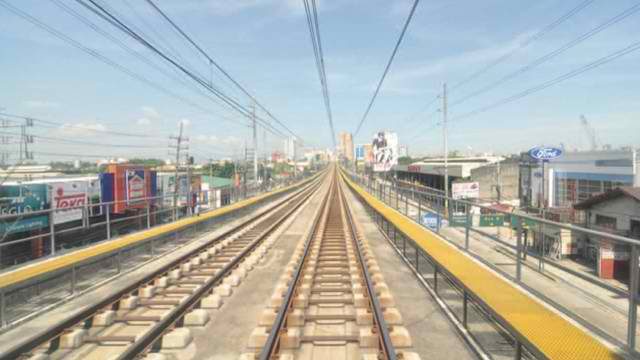SUMMARY
This is AI generated summarization, which may have errors. For context, always refer to the full article.

MANILA, Philippines – The Commission on Audit (COA) said there were procurement violations in the P397-million contract to build houses for informal settlers to be displaced by the Light Rail Transit or LRT-1 Cavite Extension.
This finding is part of COA’s 2017 audit report on the Light Rail Transit Authority (LRTA), which used to manage both LRT lines 1 and 2.
The extension project is part of the P64.9-billion ($1.36-billion) PPP deal bagged by the Light Rail Manila Corporation (LRMC).
COA raised red flags in the P397-million housing component of the extension project.
“Several deficiencies were noted in the procurement and implementation of the contract costing P397.888 million for the Relocation Housing Facilities and Amenities Project for the Informal Settlers Affected by the Alignment of the LRT Line 1 Cavite (South) Extension Project in violation of RA No 9184,” said COA.
Republic Act 9184 is the Government Procurement Reform Act.
Auditors said rules were not complied with when additional works or changes in the contract were implemented, such as additional geohazard assessment for the foundation of the houses. The required technical study of a Variation Order and Price Escalation Committee (VOPEC) was not done.
Auditors also said there were no documents to support the added works of building community facilities such as a basketball court, multi-purpose hall, playground, and classroom; and the electrification of the entire village.
In its response to COA, the LRTA said the additional works and cost were approved by the LRTA board, and that they were done to comply with the requirements of the Cavite government.
An inspection also showed that the P2.7-million field office did not fulfill all of the requirements. The field office is the bunkhouse and temporary facility for officials and workers as they build the 1,820 housing units.
The ocular inspection showed that the field office did not have internal paint and insect-proof windows as specified in the contract, and that the floor to ceiling height was less than what it should be.
“The Project Management Office informed that the corresponding value of the deficiencies will be deducted from the claims of the contractor,” said COA.
Deficiencies
Auditors said that when LRTA first entered the contract with HG-III Construction and Development Corporation in June 2015 for the housing project, several supporting documents were not submitted, such as original plans, specific computations for specific areas, extra work orders, and sub-contracts for improvements of the housing units.
In August 2016, the COA issued a notice of suspension which it lifted after the documents were submitted a month later.
“However, management did not submit clarification/explanation on the issues raised on the procurement of the project,” said COA.
Among the “deficiencies” observed by COA are the following:
- Plans and drawings not signed by administrator but by project engineer, contrary to procurement law
- Deep well drilling was subcontracted, contrary to Bid Data Sheet clause that states subcontracting shall be allowed for geohazard investigation only
- The project was awarded without first conducting a feasibility study
- Only a preliminary study was included, which created additional work orders
- Soil testing and investigation worth P4 million was included in the infrastructure contract, when it should have been bidded out to a consultancy firm
COA asked the LRTA to “submit the pertinent documents and clarification/explanations on the several deficiencies noted” in the contracts.
In its response to COA, the LRTA said: “It is true that the variation order resulted after the conduct of the tests and investigation, but the change order involves both increase and decrease of works. Thus, no additional payment or cost was imposed to the government.”
Under the extension project, 8 new stations will be provided with 3 intermodal facilities across Pasay City, Parañaque City, Las Piñas City, and Cavite.
LRMC president and CEO Juan Alfonso earlier said the extension project would begin by the end of 2018, and was targeted for completion in about 4 years or in 2021.
LRMC is a joint venture company of Metro Pacific Investments Corporation’s Metro Pacific Light Rail Corporation (MPLRC), Ayala Corporation’s AC Infrastructure Holdings Corporation (AC Infra), and the Philippine Investment Alliance for Infrastructure’s Macquarie Infrastructure Holdings (Philippines) PTE Limited.
LRMC assumed operations and maintenance of LRT-1 in September 2015, through a 32-year concession agreement with the transportation department and LRTA.
LRMC used to be headed by former public works secretary Rogelio Singson, who resigned from the LRMC in September 2017, after heading it for a year, to move to Meralco PowerGen Corporation as its president and chief executive officer. – Rappler.com
Add a comment
How does this make you feel?
There are no comments yet. Add your comment to start the conversation.